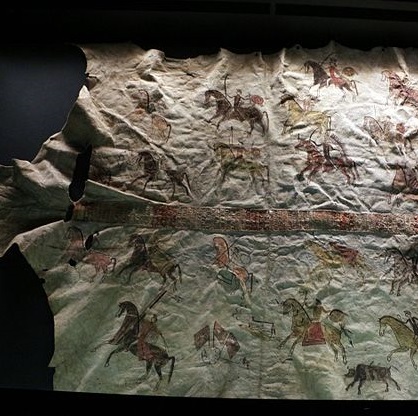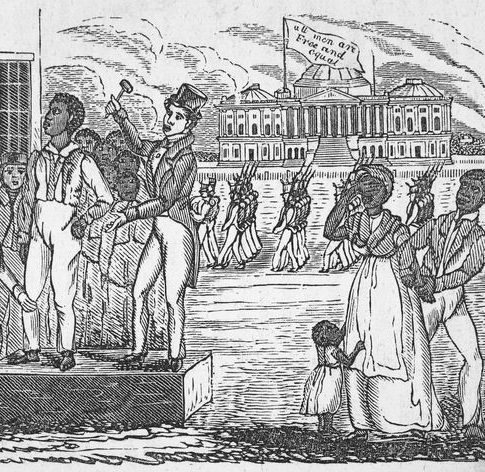
by Richard Subber | Feb 8, 2023 | American history, Book reviews, Books, History, Politics
the Battle of the Greasy Grass…
Book review:
Lakota America:
A New History of Indigenous Power
by Pekka Hämäläinen
New Haven, CT: Yale University Press, 2019
530 pages
It’s just fabulously interesting to learn more and more about the lives, the cultures, and the civilizations of the American Indians who were in quite a number of catbird seats in the continental United States until well into the 19th century.
Don’t forget that the Battle of the Little Bighorn—“Custer’s Last Stand”—known to Indian survivors as the Battle of the Greasy Grass—played out on June 25, 1876, more than a decade after the Civil War, in the same year that Alexander Graham Bell patented his telephone.
The Lakota, one of three major groups of the Sioux Indians, were dominant in the high plains west of the Great Lakes and the Mississippi River. They became a culture on horseback, and they depended on the buffalo.
In Lakota America you’ll learn that the Lakota were not tyrants, and they were not masters of every moment and every cluster of people in their domain, but mostly they called the shots for a long time.
* * * * * *
Book review. Copyright © Richard Carl Subber 2023 All rights reserved.
Book review: The Comanche Empire
the other story of the American West…
–
As with another eye: Poems of exactitude with 55 free verse and haiku poems,
and the rest of my poetry books are for sale on Amazon (paperback and Kindle)
and free in Kindle Unlimited, search Amazon for “Richard Carl Subber”
Your comments are welcome—tell me what you’re thinking.
* * * * * *

by Richard Subber | Jan 23, 2023 | Book reviews, Books, History, World history
a wonkish analysis of combat…
Book review:
Military Power:
Explaining Victory and Defeat in Modern Battle
by Stephen Biddle
Princeton, NJ: Princeton University Press, 2004
337 pages
Military Power is a fastidiously wonkish analysis of combat and military power.
Biddle makes his case for considering that “force employment,” i.e., combat doctrine and tactics, is at least as important in understanding the outcomes of battle as the count of who has the most guns and the biggest armies.
Earlier authors might have called it “leadership.”
Biddle offers remarkably detailed blow-by-blow commentary about the second battle of the Somme River in 1918, the Allies’ Normandy breakout in 1944, and Operation Desert Storm in 1991.
It’s not an easy read. Military Power will reward the reader who wants to know more.
* * * * * *
Book review. Copyright © Richard Carl Subber 20232 All rights reserved.
Book review:
The Adventures of Sherlock Holmes
from the agile mind
of Arthur Conan Doyle
–
As with another eye: Poems of exactitude with 55 free verse and haiku poems,
and the rest of my poetry books are for sale on Amazon (paperback and Kindle)
and free in Kindle Unlimited, search Amazon for “Richard Carl Subber”
* * * * * *

by Richard Subber | Dec 26, 2022 | American history, Book reviews, Books, History, Politics, Power and inequality
money did a lot of the talking…
Book review:
The Founders’ Fortunes:
How Money Shaped the Birth of America
by Willard Sterne Randall
New York: Dutton, an imprint of Penguin Random House LLC, 2022
324 pages
Randall offers details about the wealth—and intermittent lack thereof—of a number of the so-called “Founding Fathers,” and how persistently those men looked out for their own financial interests throughout the Revolutionary era.
Presumptively you aren’t surprised to learn about these details.
There’s plenty more to learn when you read The Founders’ Fortunes.
The matter-of-fact point is that these men were looking out for themselves at the same time that they were creating the independent United States of America.
* * * * * *
Book review. Copyright © Richard Carl Subber 2022 All rights reserved.
Book review: An Empire Divided
King George and his ministers
wanted the Caribbean sugar islands
more than they wanted the 13 colonies…
by Andrew Jackson O’Shaughnessy
–
Seeing far: Selected poems with 47 free verse and haiku poems,
and the rest of my poetry books are for sale on Amazon (paperback and Kindle)
and free in Kindle Unlimited, search Amazon for “Richard Carl Subber”
* * * * * *
by Richard Subber | Dec 19, 2022 | American history, Book reviews, Books, Democracy, History, Politics, Power and inequality
violence shut down the “Reconstruction”
Book review:
Splendid Failure:
Postwar Reconstruction in the American South
by Michael W. Fitzgerald (b1956)
Chicago: Ivan R. Dee, 2007
234 pages
Splendid Failure offers a shockingly realistic account of the so-called “Reconstruction” period after the Civil War. There was a lot more violence, much earlier in the time frame, than you probably know about.
The violence throughout the South was not successfully resisted by Northern forces after the war, and after the presidential election dispute of 1876, the Northern watchdogs withdrew their concern. Commercial and political interests asserted their primacy in the North.
Fitzgerald observes: “At the national level the Republicans were the party of economic growth” (p. 100).
The white elites who held the economic and political power in the South before the war basically regained their economic and political power after the brief period of nominally reformative so-called “Reconstruction.”
As we now know, the war and the so-called “Emancipation Proclamation” weren’t the end of the story.
* * * * * *
Book review. Copyright © Richard Carl Subber 2022 All rights reserved.
–
Seeing far: Selected poems with 47 free verse and haiku poems,
and the rest of my poetry books are for sale on Amazon (paperback and Kindle)
and free in Kindle Unlimited, search Amazon for “Richard Carl Subber”
* * * * * *

by Richard Subber | Dec 11, 2022 | American history, Book reviews, Books, History, Politics, Power and inequality
the former slaves were forgotten in the North…
Book review:
Reconstruction After the Civil War
by John Hope Franklin
Eric Foner, foreword
Chicago: The University of Chicago Press, 3rd edit., 1961, repr. 2013
Franklin changed the viewpoint of professional historians about the goals and failures of the Radical Republicans’ policies on “reconstruction” of the Confederate states after the American Civil War.
In the past historians reported the Reconstruction period as a politically motivated effort by Northern politicians to control the Southern states, with sometimes superficial attention to the concept and the abandonment of effectively giving millions of black Americans the right to vote.
Franklin’s thesis, in simplistic terms, is that contending political and business interests tried to pursue “reconstruction” to develop the economic capacity of the South, and the plight of freed slaves gradually slipped from the center of attention. The white folks who were leaders of the secession rather quickly resumed their control of the Southern states.
* * * * * *
Book review. Copyright © Richard Carl Subber 2022 All rights reserved.
Book review: Saint Joan
by George Bernard Shaw
–
My first name was rain: A dreamery of poems with 53 free verse and haiku poems,
and the rest of my poetry books are for sale on Amazon (paperback and Kindle)
and free in Kindle Unlimited, search Amazon for “Richard Carl Subber”
* * * * * *

by Richard Subber | Nov 25, 2022 | American history, Book reviews, Books, Democracy, History, Politics, Power and inequality
the many meanings of “shareholder value”…
Book review:
The Man Who Broke Capitalism:
How Jack Welch Gutted the Heartland
and Crushed the Soul of Corporate America—
and How to Undo His Legacy
by David Gelles
New York: Simon & Schuster, 2022
264 pages
Gelles has written a dreadfully important expose of the evolution of the disastrous idolatry of “maximizing shareholder value” and funneling more and more of America’s corporate wealth to the relatively small cadre of executives and directors and financiers who took advantage of it to line their own pockets and deny economic success to just about everyone else.
Of course, Gelles doesn’t say that Jack Welch was the only one who did it. For my taste, the title of the book is a distraction from the truth: America’s financial elite have misappropriated the industrial wealth of the country.
The Man Who Broke Capitalism concludes with a broadly detailed array of governmental policies that would remediate the disaster that Jack Welch and the Chicago school of economists and so many others created to be a substitute for the notion that a corporation is a creature of our society, and is best understood as a conduit for creating goods, creating wealth, and widely distributing both.
* * * * * *
Book review. Copyright © Richard Carl Subber 2022 All rights reserved.
Book review: Ethan Frome
it’s about not being satisfied with less…
by Edith Wharton
–
Writing Rainbows: Poems for Grown-Ups with 59 free verse and haiku poems,
and the rest of my poetry books are for sale on Amazon (paperback and Kindle)
and free in Kindle Unlimited, search Amazon for “Richard Carl Subber”
* * * * * *




